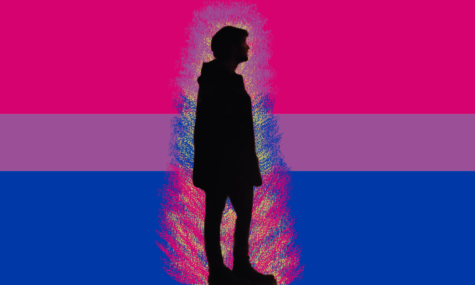‘Bisexual men do exist’
November 17, 2021

As a freshman at Tulane University, during a discussion on sexuality with a group of peers, I stated that I was 85% to 90% straight. In retrospect, it seems ridiculous to quantify my sexuality with a sterile statistic, but at 18-years-old, I was not confident enough to label myself bisexual.
I did not think much of the conversation at the time, but several weeks later I discovered that some of the girls involved in the conversation took it upon themselves to warn another girl that I liked and was not present at the time, that she should be wary of a relationship with me as I was unsure about my sexuality. Although she and I later discovered that we were more compatible as just friends, when I found out that peers had essentially warned her that I might be gay, I felt humiliated and ashamed.
Several months later, during my sophomore year, I met up with a girl from Tinder at her apartment. As we sat on her bed, she asked me “are you like … bi?.” Confused as to how this was relevant, I answered that I preferred women, but I was not entirely straight. We sat for a moment in silence, and then she responded “Well … I’m looking for a more hetero experience tonight … so I’m going to have to ask you to leave.” This experience only enhanced my self-loathing; I doubted that I could be or even deserved to be accepted.
During my sophomore year, I grew disillusioned with Tulane’s supposedly socially liberal culture. Although gay rights were largely accepted on campus, the same people who espoused love and tolerance, and even celebrated female bisexuality, often refused to acknowledge the nuances of male sexuality. Men who had ever expressed same-sex attraction to other men were labeled as gay.
As an upperclassman, however, with the help of more open-minded friends and mentors, I realized that people who refused to accept my sexuality were not worth spending time with. I also learned to appreciate the LGBTQ+ individuals far braver than I who came out before me in oftentimes dangerous environments. They are the reason it is at all acceptable to be anything other than cis straight at Tulane.
This new perspective lead me to be more open about my sexuality and take pride in who I was so that I could hopefully make Tulane and society at large a more accepting place for the bisexual men that came after me.
I am not sure who needs to hear this, but bisexual men do exist. As societal acceptance increases, the number of bisexual people who come out and bi-male visibility will increase. One day, I hope that men, or for that matter anyone, can express their sexuality with pride, and columns like this will prove obsolete. Until we achieve this reality, however, each day I will combat bi-erasure with unwavering bisexual pride.






















Leave a Comment